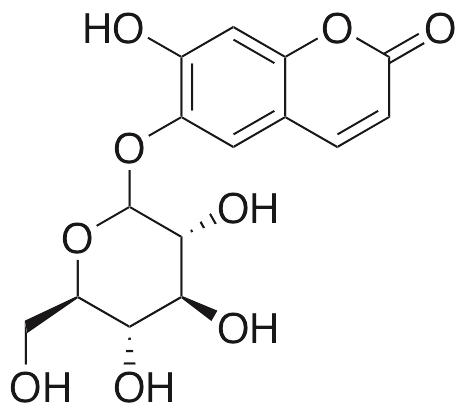Description
Esculin is a coumarin glucoside found in Aesculus, Daphne, and Bursaria. Esculin exhibits anti-diabetic and antioxidative activities. Esculin is hydrolyzed by species of Streptococcus, Enterococcus, Listeria, and Aerococcus and is used in research models to identify these bacteria. In diabetic rats, esculin decreases blood glucose and glucose-6-phosphatase levels and increases glucose uptake, potentially through the activation of insulin receptors, Akt, and GSK3β. Additionally, esculin decreases lipid peroxidation and increases levels of glutathione, glutathione peroxidase, glutathione-S-transferase, superoxide dismutase, and catalase in the kidneys of animals treated with pro-oxidant aflatoxin B1.
